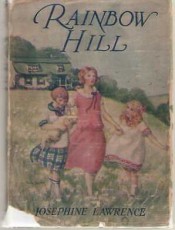the last look.
time had flowed on smoothly in the quiet old place, with an even current unbroken and unmarred, except by one event. sir henry ashwoode's danger was known to old french and mr. audley; but with anxious and effectual care they kept all knowledge of his peril and disgrace from poor mary: this pang was spared her. the months that passed had wrought in her a change so great and so melancholy, that none could look upon her without sorrowful forebodings, without misgivings against which they vainly strove. sore grief had done its worst: the light and graceful step grew languid and feeble—the young face wan and wasted—the beautiful eyes grew dim; and now in her sad and early decline, as in other times, when her smile was sunshine, and her very step light music, was still with her the same warm and gentle spirit; and even amid the waste and desolation of decay, still prevailed the ineffaceable lines of that matchless and touching beauty, which in other times had wrought such magic.
it was upon that day, the night of which saw o'connor's long-deferred arrival at ardgillagh, that flora guy, vainly striving to restrain her tears, knocked at mr. audley's chamber door. the old gentleman quickly answered the summons.
"ah, sir," said the girl, "she's very bad, sir, if you wish to see her, come at once."
"i do, indeed, wish to see her, the dear child," said he, while the tears started to his eyes; "bring me to the room."
he followed the kind girl to the door, and she first went in, and in a low voice told her that mr. audley wished much to see her, and she, with her own sweet, sad smile, bade her bring him to her bedside.
twice the old man essayed to enter, and twice he stayed to weep bitterly as a child. at length he commanded composure enough to enter, and stood by the bedside, and silently and reverently held the hand of her that was dying.
"my dear child! my darling!" said he, vainly striving to suppress his sobs, while the tears fell fast upon the thin small hand he held in his—"i have sought this interview, to tell you what i would fain have told you often before now but knew not how to speak of it, i want to speak to you of one who loved you, and loves you still, as mortal has seldom loved; of—of my good young friend o'connor."
as he said this, he saw, or was it fancy, the faintest flush imaginable for one moment tinge her pale cheek. he had touched a chord to which the pulses of her heart, until they had ceased to beat, must tremble; and silently and slow the tears gathered upon her long dark lashes, and followed one another down her wan face, unheeded. thus she listened while he related how truly o'connor had loved her, and when the tale was ended she wept on long and silently.
"flora," she said at length, "cut off a lock of my hair."
the girl did as she was desired, and in her thin and feeble hand her young mistress took it.
"whenever you see him, sir," said she, "will you give him this, and say that i sent it for a token that to the last i loved him, and to help him to remember me when i am gone: this is my last message—and poor flora, won't you take care of her?"
"won't i, won't i!" sobbed the old man, vehemently. "while i have a shilling in the world she shall never know want—faithful creature"—and he grasped the honest girl's hand, and shook it, and sobbed and wept like a child.
he took the long dark ringlet, which he had promised to give to o'connor; and seeing that his presence agitated her, he took a long last look at the young face he was never more to see in life, and kissing the small hand again and again, he turned and went out, crying bitterly.
soon after this she grew much fainter, and twice or thrice she spoke as though her mind was busy with other scenes.
"let us go down to the well side," she said, "the primroses and cowslips are always there the earliest;" and then she said again, "he's coming, flora; he'll be here very soon, so come and dress my hair; he likes to see my hair dressed with flowers—wild flowers."
shortly after this she sank into a soft and gentle sleep, and while she lay thus calmly, there came over her pale face a smile of such a pure and heavenly light, that angelic hope, and peace, and glory, shone in its beauty. the smile changed not; but she was dead! the sorrowful struggle was over—the weary bosom was at rest—the true and gentle heart was cold for ever—the brief but sorrowful trial was over—the desolate mourner was gone to the land where the pangs of grief, the tumults of passion, regrets, and cold neglect are felt no more.
her favourite bird, with gay wings, flutters to the casement; the flowers she planted are sweet upon the evening air; and by their hearths the poor still talk of her and bless her; but the silvery voice that spoke, and the gentle hand that tended, and the beautiful smile that gave an angelic grace to the offices of charity, where are they?
the tapers are lighted in the silent chamber, and flora guy has laid early spring flowers on the still cold form that sleeps there in its serene sad beauty tranquilly and for ever; when in the court-yard are heard the tramp and clatter of a horse's hoofs—it is he—o'connor,—he comes for her—the long lost—the dearly loved—the true-hearted—the found again.
'twere vain to tell of frantic grief—words cannot tell, nor imagination conceive, the depth—the wildness—the desolation of that woe.
